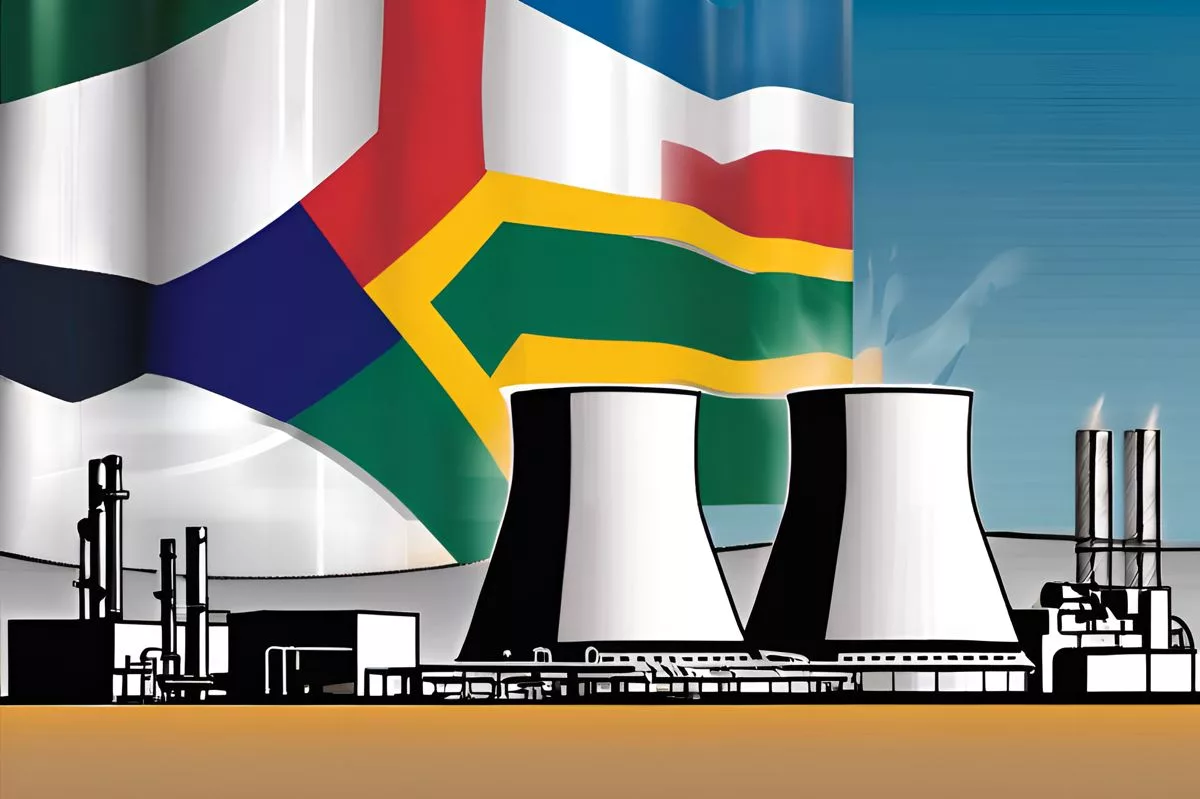South Africa’s energy sector is enjoying a remarkable period of stability, celebrating 80 days without power shortages. Eskom’s recovery approach has led to a significant decrease in unplanned power outages, now at a manageable 12,000MW. Eskom’s plan has been characterized by an insightful understanding of the country’s electricity demand trends, allowing for optimized power demand patterns. As Eskom continues on its journey of improvement, South Africa can look forward to experiencing many more days free from loadshedding.
South Africa’s energy sector is enjoying a period of renewed vigor and stability, celebrating an uninterrupted run of 80 days without power shortages, surpassing last year’s record of 75 days. Eskom’s recovery approach has led to a remarkable decrease in unplanned power outages, now at a manageable 12,000MW. Eskom’s plan has been characterized by an insightful understanding of the country’s electricity demand trends.
South Africa’s Energy Sector: A Remarkable Feat of Resilience
South Africa’s energy sector is enjoying a period of renewed vigor and stability, celebrating an uninterrupted run of 80 days without power shortages, surpassing last year’s record of 75 days. This noteworthy achievement is a clear indication of the commitment and diligence shown by Eskom, the country’s main electricity provider, in executing an effective recovery strategy and improving their power production capabilities.
This encouraging development in South Africa’s energy scenario is a welcome change from the recurring stories of power instability. Eskom’s recovery approach has led to a remarkable decrease in unplanned power outages, now at a manageable 12,000MW. This exceptional turnaround has exceeded the year’s winter prediction, securing a consistent and reliable electricity supply for the country.
To truly comprehend the impact of this accomplishment, it’s essential to look back to the winter prediction made on April 26, 2024. It anticipated unplanned outages totaling 15,500MW and load shedding restricted to Stage 2. Today, the country enjoys a power surplus, and the prediction remains relevant, signifying Eskom’s promise to its people.
Eskom’s Strategy: Optimizing Power Demand Patterns
Eskom’s plan has been characterized by an insightful understanding of the country’s electricity demand trends. The company has cleverly exploited its peaking stations, inclusive of Open Cycle Gas Turbines (OCGT), to meet the high demand during morning and evening peak times. This strategic resource management has been crucial in averting power outages and assuring a steady electricity supply.
A remarkable aspect of Eskom’s triumph has been the substantial decrease in the Unplanned Capacity Loss Factor (UCLF), which has dropped by 35.5%. Simultaneously, the Energy Availability Factor (EAF) has risen by 8% from April 1, 2024, to June 13, 2024. These statistics highlight the significant progress made by the utility company in effectively managing the nation’s power supply.
The commendation for this positive trend also deserves to be extended to Eskom CEO, Dan Marokane, who has navigated his initial 100 days in office commendably. Marokane’s leadership has instilled a revitalized sense of mission and direction at Eskom, with a clear emphasis on operational recovery. His dedication to preparing the business for the future extends beyond simply managing the present.
A Promising Future: Beyond Load Shedding
Marokane’s vision surpasses the immediate hurdles of load shedding. His statement, “What we have is a really good base to work on,” mirrors his faith in Eskom’s ability to further enhance its performance. He has shown a profound understanding of the need to diminish unplanned outages for a more pleasant winter, setting the benchmark at staying below 14,000MW of unplanned losses.
Marokane’s confidence is well justified. With current unplanned losses averaging at 12,000MW, South Africa is indeed treading a promising path. This provides the nation with substantial relief, not just for the imminent winter but for the long-term future of its energy supply.
South Africa’s existing energy scenario portrays a narrative of resilience and progress. The nation’s power supply is robust, load shedding is a thing of the past, and the winter outlook is optimistic. As Eskom and its CEO carry on to build on this stable foundation, the future of South Africa’s energy stability appears promising.
In summary, the tale of South Africa’s energy sector is one of evolution and progression. It tells the story of a country that has battled with power issues and emerged stronger, with a clear vision for its energy future. As Eskom continues on its journey of improvement, South Africa can look forward to experiencing many more days free from loadshedding.
What is the current state of South Africa’s energy sector?
South Africa’s energy sector is enjoying a remarkable period of stability, celebrating 80 days without power shortages. Eskom’s recovery approach has led to a significant decrease in unplanned power outages, now at a manageable 12,000MW.
What has been the key to Eskom’s success in improving power production capabilities?
Eskom’s plan has been characterized by an insightful understanding of the country’s electricity demand trends, allowing for optimized power demand patterns. The company has cleverly exploited its peaking stations, inclusive of Open Cycle Gas Turbines (OCGT), to meet the high demand during morning and evening peak times.
Who is the CEO of Eskom and what is his vision for the company?
The CEO of Eskom is Dan Marokane, who has navigated his initial 100 days in office commendably. Marokane’s vision surpasses the immediate hurdles of load shedding. His statement, “What we have is a really good base to work on,” mirrors his faith in Eskom’s ability to further enhance its performance.
What has been the impact of Eskom’s recovery approach on unplanned power outages?
Eskom’s recovery approach has led to a remarkable decrease in unplanned power outages, now at a manageable 12,000MW. This is a significant improvement from the previous prediction of 15,500MW.
How has Eskom optimized power demand patterns?
Eskom has cleverly exploited its peaking stations, inclusive of Open Cycle Gas Turbines (OCGT), to meet the high demand during morning and evening peak times. This strategic resource management has been crucial in averting power outages and assuring a steady electricity supply.
What is the future outlook for South Africa’s energy stability?
As Eskom continues on its journey of improvement, South Africa can look forward to experiencing many more days free from loadshedding. The CEO of Eskom, Dan Marokane, has shown a profound understanding of the need to diminish unplanned outages for a more pleasant winter, setting the benchmark at staying below 14,000MW of unplanned losses.












